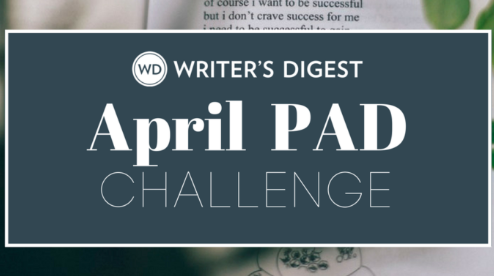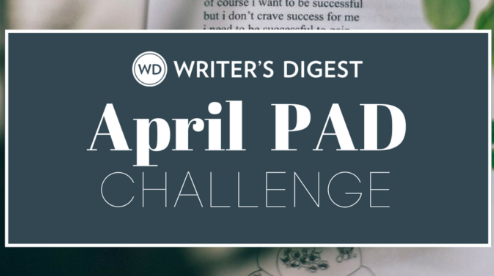Occasional Poetry Redux: Amanda Gorman, the Presidential Inauguration, and the NFL’s Big Game
In this post, we take a look at what makes a good poem (including occasional poetry), reaction to Amanda Gorman’s inaugural poem, and how you can write effective poetry for any occasion.
If nothing else, 2021 is already an exciting year for poets and poetry, and mostly because of the exploits of former (and first ever) National Youth Poet Laureate Amanda Gorman. On January 20, she read a poem at the inauguration of President Joe Biden. In a few minutes (probably between 6 and 6:40 pm Tampa time), she'll read a poem as part of the coin toss ceremonies for the NFL's big championship game. What a poetic start to the year!
Immediately after the inauguration (but before learning about today's poem), there was some debate about Gorman's poem. Most people thought it was incredible (as a poem and for poetry in general), while some poets threw out some criticism about whether it was a good poem or not. And without getting drawn too much into that debate (because honestly, "good poem or not" debates are about as subjective as you can get), I am interested in looking at occasional poetry and what makes an effective occasional poem.
So let's take a look at what makes a good poem (including occasional poetry), reaction to Gorman's poem, and how you can write effective poetry for any occasion.
*****
Want a place to send your writing? Try the Writer's Digest Annual Writing Competition with thousands of dollars in prizes in a variety of categories for people who write poetry, fiction, nonfiction, and more!
*****
What Makes a Good Poem?
This, of course, is a laughably ambitious question to answer. What, indeed, makes a good poem? Is it a poem that rhymes? Is it a poem that is structurally perfect? And if so, what structure is the perfect structure? Is it a poem that defies all conventions and linguistic norms? Is it a poem that challenges? Does it have to be published in a journal, win awards, be praised by award-winning poets? Or is it a poem that makes one feel? The answer is dependent on the audience.
Whether you like the movie or not, Dead Poets Society provides a good way to look at quantifying poetry:
This clip shows the act of objectively rating poetry is ludicrous. Does that mean there is nothing to learn from critiquing and learning the craft of poetry? Of course not! But writing and enjoying poetry is not a simple act of addition and subtraction.
Rather, it's a way to stab at things we'll never truly be able to express completely, though we feel the urge rise within us constantly. Like most art, it's based on principles and craft. Like most art, the best of it is hard to explain outside of expressing our enjoyment.
As Emily Dickinson put it (perhaps better than anyone) in a letter to Thomas Wentworth Higginson, "If I read a book [and] it makes my whole body so cold no fire can ever warm me, I know that is poetry. If I feel physically as if the top of my head were taken off, I know that is poetry. These are the only ways I know it? Is there any other way?"
Or, I'll share a personal anecdote: My favorite poem is "Stopping By Woods on a Snowy Evening," by Robert Frost. I think it's just a beautiful poem that is so expertly done, but I did not connect with it in middle school when I originally read it along with other Frost poems. So was the poem horrible when I dismissed it earlier in my life? Did it become good later? Was it my fault as a reader that I didn't recognize it's greatness the first time through?
Honestly, I don't think it's that simple. Good poetry could be dismissed by a million readers but touch one person deeply. That's what I believe.
Reaction to Amanda Gorman's Inauguration Poem
As such, I think Gorman's inauguration poem was a hit. I'm sure tonight's poem will spark many hearts and minds as well. I can't wait to hear it. But in the meantime, here are some reactions to Gorman's inauguration poem that I solicited in January.
"It's exactly what we needed, from exactly the right person, delivered in exactly the right way. Spoken poetry crafted for the public is rarely so luminous." —Christine Klocek-Lim
"I was in tears listening to her. I think it is a poem that will be studied and commented on for years to come." —Robin Russin
"Even just reading it, gives me chills, brings tears to my eyes." —Adela Jabine
"The bits and pieces I hear quoted again and again did just what I believe she intended—declared, exhorted, reminded, engendered feelings of all kinds. You could practically see people turning to one another and nodding, slapping hands, smiling at her craft, and her delivery, and her beauty. This was a new thing, this inaugural spoken word. It was brave and beautiful." —Rebecca Woods Meredith
"It was the right poem for the moment." —John Hanson
"It suited the general audience who needed hope and wanted to laud the day. It was an occasional poem, and as such, met the criteria." —Amy L. George
"I loved it. ... This young lady signaled hope and a brighter future!" —Jason Retherford
"I'm a fan of accessible poetry - this was electric, dynamic, kinetic, and completely engaging." —Carol Crawford
"It hit all the right notes for the occasion, which is what one should expect from an inaugural poem. ... There was a dignity to it, and I think she nailed the landing. ... I think she has a bright future." —Bruce Niedt
"I thought it was phenomenal on its own merit in every way." —Jordan Rosenfeld
"When Amanda had finished performing her poem, I felt I had been generously invited into her true thoughts and that she had been open and vulnerable and by being open and vulnerable she had showed the finest type of courage. The sort of courage that I can only dream of having." —Mi Brenton
"I think what captured everyone's imagination was the MOMENT, where we are here as a country, the place, the time, the players on the stage, what we've all been through together. A formal, scholarly, overly written poem would have killed this moment. ... We all too often find poets writing for other poets, in a world that's famously circular and maybe a bit too insular." —Cleo Creech
"She made a couple of generations of kids listening to her consider poetry and performance in new ways. ... Win/win for this old teacher." —Jane Shlensky
"She will inspire a lot of young people to become poets. I hadn't written a poem in many years, and this week I wrote two." —Nina Amir
I admit that I shared only the positive comments. Some poets thought Gorman's poem read too much like a speech at times or found other failings with the poem, and that's okay. Every poem doesn't have to appeal to everyone; but if it sparks conversation and inspires others to write, it must be doing something right, right?
Even my 12-year-old, who is not happy about it, can tell you that Gorman's inauguration poem has had a positive impact on, if nothing else, the promotion of poetry. Many of his teachers assigned him the task of writing a poem this week, even in classes that don't teach language. For instance, he has to write a 10-liner on water for his earth science class. Bravo, Gorman!
How You Can Write Effective Occasional Poetry
So how can you write an effective occasional poem? There is actually a blueprint for this, but it's what you do with the blueprint that matters.
- Identify the occasion. Are you writing a love poem for Valentine's Day? That will likely be different than a poem for an inauguration or a poem for a wedding.
- Target your audience. Often, writing a poem for EVERYONE is a failed strategy, because every piece of art (no matter how great) will be considered a success for some and failure for others. Remember that love poem? Are you writing that for a class assignment? For a special someone? That will impact what you write.
- Write your poem. Simple as that, right? Okay, I know poetry, though enjoyable, is not always simple, but yeah, that's it. Anyone can do this.
If you identify your audience, write for them with all your heart, and let the chips fall where they may, you'll very likely write an effective occasional poem, whether it's a sonnet, haiku, sestina, free verse, or prose poem. Somehow or another, poetry tends to rise to the occasion.
Robert Lee Brewer is Senior Editor of Writer's Digest, which includes managing the content on WritersDigest.com and programming virtual conferences. He's the author of 40 Plot Twist Prompts for Writers: Writing Ideas for Bending Stories in New Directions, The Complete Guide of Poetic Forms: 100+ Poetic Form Definitions and Examples for Poets, Poem-a-Day: 365 Poetry Writing Prompts for a Year of Poeming, and more. Also, he's the editor of Writer's Market, Poet's Market, and Guide to Literary Agents. Follow him on Twitter @robertleebrewer.




